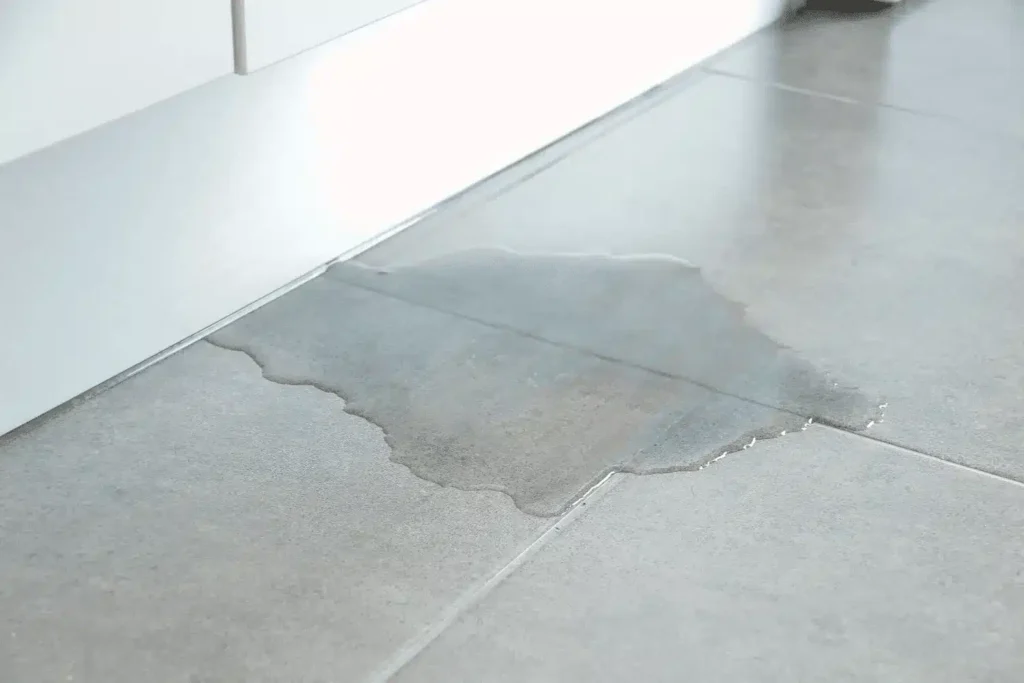A slab leak is a plumbing leak that occurs in the pipes that are located underneath the concrete slab of the house. Slab leaks creations occur beneath the concrete foundation and can go unnoticed for a period of time until things get progressively worse. Causes for slab leaks are corrosion to pipes, built-up pressure, abrasion from the hard surface, and roots from trees. Certain signs can lead homeowners to indicate that a slab leak is occurring. By this time, substantial damage can occur resulting in costly repairs. Slab leak detection is an effective way to avoid finding the problem before it’s too late and there are different ways you can try to detect a slab leak.
Increased Water Bills
If you start to notice that your bill is higher than what your water consumption should be, chances are there could be a slab leak. Increased water bill either shows that you are using more water or that there is a leak somewhere in your home. Hence, you need to constantly monitor the amount of water you consume every month so that you are able to notice any slight change in the water bill.
Sound of Water Rushing Behind Your Walls
If you hear the sound of running water within your walls, it is a definite sign of a potential slab leak. To figure out whether this is indeed the issue, follow these steps: Firstly, make sure to shut off all faucets and running water sources throughout the house. Take a moment to listen for any sounds emanating from the walls. Additionally, inspect the water meter positioned on the wall. If you observe the meter’s pointer in motion, it indicates an undisclosed source of running water, potentially indicating a slab leak.
Water Pressure is Low
Low water pressure can be attributed to various factors such as water debris, faulty valves, mineral buildup in pipes, and water leaks. If all other potential causes have been ruled out, it is highly likely that a slab leak is responsible for the low water pressure. To identify the specific reason behind the low water pressure, follow these steps: Start by identifying all the water outlets in your house. Run the water from each outlet and observe if any of them exhibit low pressure. If certain locations have consistently low pressure, take note of their characteristics. For example, consider whether these areas are situated near a slab. If a low-pressure water outlet is in close proximity to a slab, it could indicate an under slab leak as the root cause.
Spots on Your Floor & Tile
A spot on the floor doesn’t always indicate a simple dry paste that was spilled a few days ago. It could signify a more significant issue like a leaking slab. Spots on the floor suggest that there may be broken or damaged hot water lines beneath the slab. Warm spots are commonly observed because the presence of hot water accelerates corrosion and chemical reactions within the pipes. However, a hot spot on the floor could also indicate a leaking valve in the bathroom sink or shower, located near the slab. While these causes may not be as severe, it is crucial to address them promptly to prevent them from escalating into more catastrophic problems.
Cracks on Your Walls or the Foundation of Your Home
Cracks and shifting in the foundation can be a direct result of a leaking slab. Over time, water infiltrates the slabs and gradually moves downward until it reaches the foundation. This disrupts the overall stability of the concrete and leads to settlement. As a consequence of this settlement, the foundation experiences movement and cracks due to both the lack of stability and the weight exerted by the structure above. Therefore, it is crucial not to disregard any issues with the foundation, as they can have serious consequences.
Water Leak Test
While it may not be an official “leak detection” method as defined by professional plumbers, there is a simple test you can perform to determine if your house is experiencing hidden water wastage. Start by locating your water meter and noting down its current reading. Next, ensure that all water-consuming appliances are turned off for an hour (preferably when your house is unoccupied to eliminate the possibility of accidental water usage). After the hour has passed, check the water meter again and observe if the reading has increased. If there is an increase in the reading, it is likely that you have a leak somewhere in your plumbing system.
Professional Slab Leak Detection
The detection of an under slab leak can be accomplished through destructive or non-destructive methods. Destructive methods involve the use of tools like shovels and drillers, while non-destructive methods may utilize electromagnetic pipe locators.
It is important to note that non-destructive tools tend to be more expensive than their destructive counterparts. Therefore, your choice of method will depend on your financial capacity and the desired results.
If you are certain that there is a slab leak, it is advisable to explore your repair options by consulting a professional plumber. Their expertise in leak detection goes beyond simply confirming the presence of leaks; they specialize in identifying the exact locations of these leaks. To accomplish this, licensed plumbers employ advanced equipment, such as ground microphones, listening discs, thermal scanners, and video inspection tools. Pinpointing the precise locations of pipe leaks is crucial for plumbers to carry out repairs while minimizing disruption to your home.
Orange County Slab Leak Services
If you have a slab leak detection in your Orange County home and are in need of professional assistance, don’t hesitate to call the experts at Pristine Plumbing. Call 714-397-5954 to schedule an appointment today!

